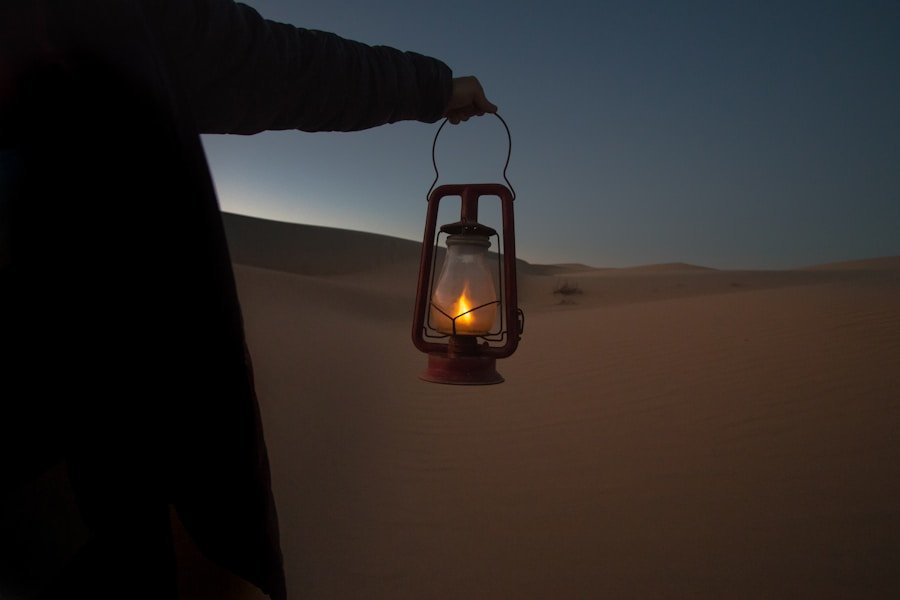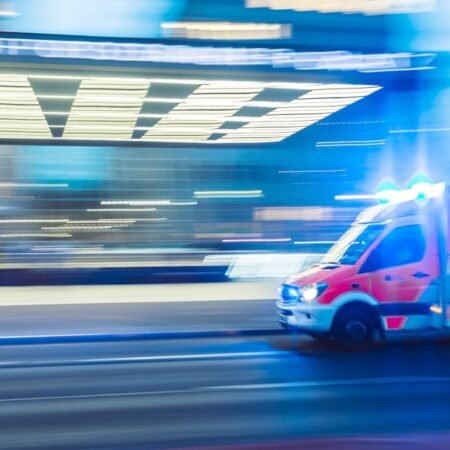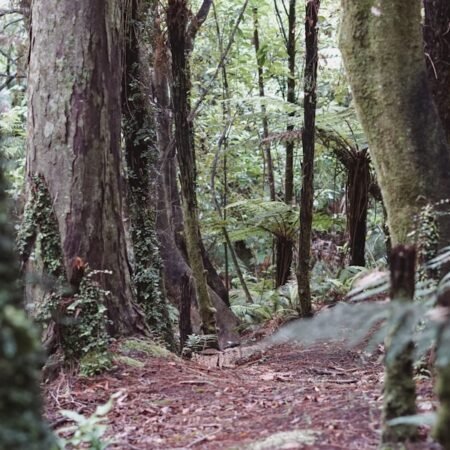When selecting a campsite, safety should be the top priority. Several hazards need to be considered to ensure a safe and enjoyable camping experience. The terrain of the campsite is a crucial factor to assess.
Opt for level ground that is free from potential hazards such as loose rocks, steep cliffs, or unstable ground. The proximity of water sources is also essential to consider, as camping too close to a river or stream can pose a risk of flooding in the event of heavy rain. Additionally, be aware of potential natural hazards such as falling branches or trees, and avoid setting up camp under dead or damaged trees.
Another critical consideration when choosing a safe campsite is the presence of wildlife. While encountering wildlife can be an exciting part of camping, it’s essential to take precautions to minimize the risk of dangerous encounters. Look for signs of wildlife activity such as tracks, scat, or scratch marks on trees, and avoid setting up camp in areas where these signs are prevalent.
Properly storing food and garbage is also crucial to avoid attracting wildlife to your campsite. Using bear-proof containers or hanging food in a bear bag can help prevent unwanted encounters with wildlife. By carefully assessing potential hazards and taking precautions to minimize risks, campers can ensure a safe and enjoyable experience.
Key Takeaways
- Always check the weather forecast before heading out and be prepared for any changes in weather conditions while camping.
- Choose a campsite away from potential hazards such as dead trees, cliffs, or areas prone to flooding.
- Keep a first aid kit handy and know how to use it in case of any unexpected situations or emergencies while camping.
- Store food properly to prevent contamination and illness, and always follow safe food handling practices while cooking and eating in the outdoors.
- Carry essential navigation tools such as a map, compass, and GPS, and make sure to have a reliable means of communication in case of emergencies.
Fire Safety: Essential Precautions for a Safe Camping Experience
Check for Fire Restrictions
One of the first steps in practicing fire safety while camping is to check for any fire restrictions or bans in the area where you plan to camp. Many areas have specific regulations regarding campfires, and it’s important to adhere to these guidelines to prevent wildfires and protect the natural environment.
Building and Maintaining a Campfire
When building a campfire, be sure to clear away any flammable debris from the area and create a fire ring using rocks or a metal fire ring if available. It’s also important to keep the fire small and manageable, and never leave it unattended. When extinguishing the fire, be sure to douse it with water until it is completely out and cool to the touch.
Emergency Preparedness
In addition to practicing fire safety when building and maintaining a campfire, it’s also important to be prepared for unexpected emergencies. Carrying a fire extinguisher or bucket of water can help to quickly extinguish any accidental fires that may occur. It’s also important to have a plan in place for evacuating the area in the event of a wildfire, and to be aware of nearby escape routes. By taking precautions to prevent wildfires and being prepared for emergencies, you can ensure a safe and enjoyable camping experience.
Wildlife Encounters: How to Minimize Risks in the Great Outdoors
While encountering wildlife can be an exciting part of camping, it’s important to take precautions to minimize the risk of dangerous encounters. There are several steps you can take to reduce the likelihood of wildlife encounters while camping, and being prepared can make all the difference in ensuring a safe experience in the great outdoors. One of the first things to consider is proper food storage.
Keeping food and garbage properly stored can help to prevent attracting wildlife to your campsite. Using bear-proof containers or hanging food in a bear bag can help to minimize the risk of unwanted encounters with wildlife. It’s also important to avoid leaving food or garbage unattended, as this can attract animals and increase the risk of dangerous encounters.
In addition to proper food storage, it’s also important to be aware of potential wildlife activity in the area where you plan to camp. Look for signs such as tracks, scat, or scratch marks on trees, and avoid setting up camp in areas where these signs are prevalent. It’s also important to be mindful of your surroundings and make noise while hiking or walking through areas where wildlife may be present.
This can help to alert animals to your presence and reduce the likelihood of surprising them. By taking precautions to minimize the risk of wildlife encounters and being prepared for unexpected situations, you can ensure a safe and enjoyable camping experience.
Food Safety: Preventing Illness and Contamination While Camping
| Camping Safety Pitfalls | Metrics |
|---|---|
| Not checking the weather forecast | Percentage of campers who don’t check the weather before heading out |
| Leaving food unattended | Number of reported wildlife encounters due to unattended food |
| Not properly storing food | Percentage of campers who don’t store food in bear-proof containers |
| Not having a first aid kit | Percentage of campers without a first aid kit |
| Not informing others of your plans | Percentage of campers who don’t inform anyone of their camping plans |
When it comes to camping, food safety is an essential consideration for ensuring a safe and enjoyable experience in the great outdoors. Proper food handling and storage can help to prevent illness and contamination while camping, and taking precautions can make all the difference in ensuring a safe experience. One of the first steps in practicing food safety while camping is proper food storage.
Keeping perishable items such as meat, dairy products, and eggs in a cooler with plenty of ice can help to prevent spoilage and reduce the risk of foodborne illness. It’s also important to keep raw meat separate from other foods and to use separate cutting boards and utensils for raw meat and other items. In addition to proper food storage, it’s also important to practice good hygiene while preparing and handling food while camping.
Washing your hands with soap and water before and after handling food can help to prevent contamination and reduce the risk of illness. It’s also important to cook food thoroughly to kill any harmful bacteria that may be present. Using a meat thermometer can help to ensure that meat is cooked to a safe temperature, and avoiding cross-contamination by using separate plates and utensils for raw and cooked foods can help to prevent illness.
By taking precautions to practice proper food safety while camping, you can ensure a safe and enjoyable experience in the great outdoors.
Weather Preparedness: Staying Safe in the Face of Mother Nature’s Fury
When it comes to camping, being prepared for changing weather conditions is essential for ensuring a safe experience in the great outdoors. Mother Nature can be unpredictable, and taking precautions to stay safe in the face of changing weather can make all the difference in ensuring an enjoyable camping experience. One of the first steps in weather preparedness is staying informed about current weather conditions in the area where you plan to camp.
Checking weather forecasts before your trip can help you prepare for potential storms or extreme temperatures, and being aware of any potential weather hazards can help you make informed decisions about your camping plans. In addition to staying informed about current weather conditions, it’s also important to pack appropriate clothing and gear for changing weather. Dressing in layers can help you stay comfortable in fluctuating temperatures, and packing rain gear such as a waterproof jacket and pants can help you stay dry in wet weather.
It’s also important to have a plan in place for seeking shelter in the event of severe weather, such as thunderstorms or high winds. Being prepared with a sturdy tent or tarp can provide protection from the elements, and knowing where nearby shelters or buildings are located can help you stay safe in the face of changing weather conditions. By taking precautions to stay informed about current weather conditions and being prepared with appropriate clothing and gear, you can ensure a safe and enjoyable camping experience.
Navigation and Communication: Essential Tools for Safety in the Wilderness
Navigating the Wilderness
One of the first tools for navigation that is essential while camping is a map of the area where you plan to camp. Having a detailed map that shows trails, landmarks, and potential hazards can help you navigate unfamiliar terrain and avoid getting lost. It’s also important to have a compass or GPS device that can help you determine your location and find your way back to camp if needed.
Staying Connected
In addition to having tools for navigation, it’s also important to have reliable communication devices while camping. Carrying a fully charged cell phone or two-way radio can help you stay in touch with others in your group or call for help in an emergency. It’s also important to have a plan in place for communicating with others if you become separated while hiking or exploring the area.
Planning for Safety
Setting designated meeting points or using signals such as whistles or flashlights can help you stay connected with others while camping. By taking precautions to have the right tools for navigation and communication while camping, you can ensure a safe and enjoyable experience in the wilderness.
First Aid and Emergency Preparedness: Key Steps for Handling Unexpected Situations while Camping
When it comes to camping, being prepared for unexpected situations is essential for ensuring your safety in the great outdoors. Accidents or emergencies can happen while camping, and having a plan in place for handling unexpected situations can make all the difference in ensuring a safe experience. One of the first steps in emergency preparedness while camping is packing a well-stocked first aid kit.
Having essential items such as bandages, antiseptic wipes, pain relievers, and medical tape can help you treat minor injuries or illnesses while camping. It’s also important to have any necessary medications on hand if you have specific medical conditions. In addition to having a first aid kit, it’s also important to have a plan in place for seeking help in the event of an emergency while camping.
Knowing where nearby medical facilities are located and having contact information for emergency services can help you quickly get assistance if needed. It’s also important to have a plan for evacuating the area in the event of severe weather or other emergencies, and knowing nearby escape routes can help you stay safe in unexpected situations. By taking precautions to pack a well-stocked first aid kit and having a plan in place for seeking help in emergencies, you can ensure a safe and enjoyable camping experience.
In conclusion, there are several common safety pitfalls that campers should be aware of when planning their outdoor adventures. By taking precautions such as choosing a safe campsite, practicing fire safety, minimizing wildlife encounters, practicing proper food safety, staying prepared for changing weather conditions, having essential tools for navigation and communication, and being prepared for unexpected situations with first aid and emergency preparedness measures, campers can ensure a safe and enjoyable experience in the great outdoors. By being mindful of potential hazards and taking steps to minimize risks, campers can enjoy all that nature has to offer while staying safe during their outdoor adventures.
FAQs
What are some common camping safety pitfalls to avoid?
Some common camping safety pitfalls to avoid include not properly storing food to prevent attracting wildlife, not checking the weather forecast before heading out, and not being prepared for emergencies.
How can I prevent attracting wildlife while camping?
To prevent attracting wildlife while camping, it’s important to properly store food by using bear-proof containers or hanging food in a bear bag away from the campsite. It’s also important to clean up any food scraps and avoid cooking or storing food in or near the tent.
What should I do to prepare for emergencies while camping?
To prepare for emergencies while camping, it’s important to have a well-stocked first aid kit, know basic first aid and CPR, and have a plan for communication and seeking help in case of an emergency. It’s also important to be aware of the nearest medical facilities and emergency services in the area.
What are some important safety tips for camping in extreme weather conditions?
Some important safety tips for camping in extreme weather conditions include checking the weather forecast before heading out, packing appropriate clothing and gear for the expected conditions, and knowing how to recognize and respond to signs of hypothermia, heat exhaustion, or other weather-related illnesses.
How can I stay safe around campfires while camping?
To stay safe around campfires while camping, it’s important to follow all fire regulations and restrictions, keep a safe distance from the fire, never leave a fire unattended, and fully extinguish the fire before leaving the campsite or going to bed. It’s also important to have a water source or fire extinguisher nearby in case of emergencies.













